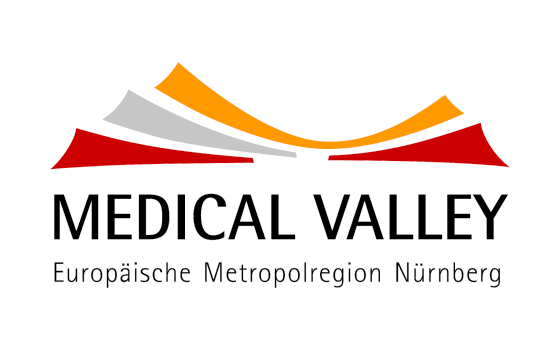 On the last day of the working visit of the Minister of the Economy Franz Fayot to Germany, the Luxembourg delegation visited the digital health cluster Medical Valley in Erlangen in Bavaria. The Medical Valley European Metropolitan Region Nuremberg (EMN) is a leading international innovation ecosystem in the field of healthcare management. It has around 240 members from business (companies and investors), science, healthcare and politics and works closely withworld-renowned healthcare research institutions to jointly find solutions for the healthcare
challenges of today and tomorrow.
On the last day of the working visit of the Minister of the Economy Franz Fayot to Germany, the Luxembourg delegation visited the digital health cluster Medical Valley in Erlangen in Bavaria. The Medical Valley European Metropolitan Region Nuremberg (EMN) is a leading international innovation ecosystem in the field of healthcare management. It has around 240 members from business (companies and investors), science, healthcare and politics and works closely withworld-renowned healthcare research institutions to jointly find solutions for the healthcare
challenges of today and tomorrow.
After a presentation of Medical Valley to the Luxembourg delegation, there was a working meeting with several stakeholders, members of the association, focusing on digital health applications (in German: Digitale Gesundheitsanwendungen -DiGA) and the question of their certification for reimbursement by social security.
Medical Valley and digital health applications
In December 2019, Germany introduced into its legislation the possibility for doctors to prescribe digital health applications as patient care tools, in the same way as medicines. This legislation also makes it possible to have a digital health application certified and thus obtain reimbursement from the social security system, based on the certification file. Germany is thus the first European country to have put in place a complete regulatory framework, from certification to reimbursement of digital health applications, which Luxembourg also intends to put in place in order to reinforce the attractiveness of the health technology sector. As the initiator of a system enabling digital health applications to be certified and thus be reimbursed by the social security system, Germany now serves as a model for other European countries, including Luxembourg. Medical Valley has played a key role in this context, via the company dmac GmbH, in particular by supporting companies wishing to have the health applications they have developed certified.
Cooperation agreement between the Ministry of the Economy, Medical Valley and dmac GmbH
The Minister of the Economy Franz Fayot, Jörg Trinkwalter and Prof. Dr. Jürgen Schüttler, members of the board of directors of Medical Valley, announced a cooperation agreement between the Ministry of the Economy, Medical Valley and dmac GmbH in order to identify the specific needs in terms of market access for companies active in digital health applications, that wish to access the Luxembourg and European markets with products in the pre-commercial phase, in order to make it an attractive factor for the HE:AL campus.Franz Fayot said: "When it comes to innovation, collaboration is key and this is especially true in the field of health technologies. I am therefore honoured to be able to formalise today our collaboration with Medical Valley, which is a reference player at international level in the field of healthcare management. Through this agreement, our ambition is to position Luxembourg as a key player in the field of digital health technologies and as an ecosystem of choice for companies active in digital health applications that wish to access the Luxembourg and European markets."
Jörg Trinkwalter added: "Medical Valley stands for innovation through cooperation. Therefore, we are glad to initialise a comprehensive partnership with Luxembourg. This partnership shall contribute to the development of a real unified European digital healthcare market with possibilities to accelerate the time-to-market for medical apps and digital therapeutics. We truly believe that digitalisation in general and specifically digital therapeutics are key for increasing the efficiency and efficacy in healthcare and have great economic potential.”
Meeting of Franz Fayot with the CEO of Siemens Healthineers
On the same day, Minister of the Economy Franz Fayot had a meeting with Bernd Montag, CEO of Siemens Healthineers. Together, they shared their vision of digitalisation in general and in the field of healthcare in particular. They exchanged views on the opportunities of digitalisation for the benefit of society and the economy and confirmed their joint commitment to the competitiveness of the European health technology industry, especially in the context of the Artificial Intelligence Act, currently under negotiation at European level.The working visit concluded with presentations and exchanges on the potential of artificial intelligence in health technologies and digital health. Among the topics discussed was the possibility of implementing artificial intelligence-based tools to extract actionable value from data for better diagnostic and therapeutic decisions.
About the Medical Valley European Metropolitan Region Nuremberg (EMN) Association
The Medical Valley European Metropolitan Region Nuremberg (EMN) Association is an internationally leading innovation ecosystem in the area of healthcare management.Highly specialized research institutions, internationally leading and at the same time many growing companies are active here. They cooperate closely with world-renowned health research institutions in order to jointly find solutions for the challenges of healthcare today and tomorrow.